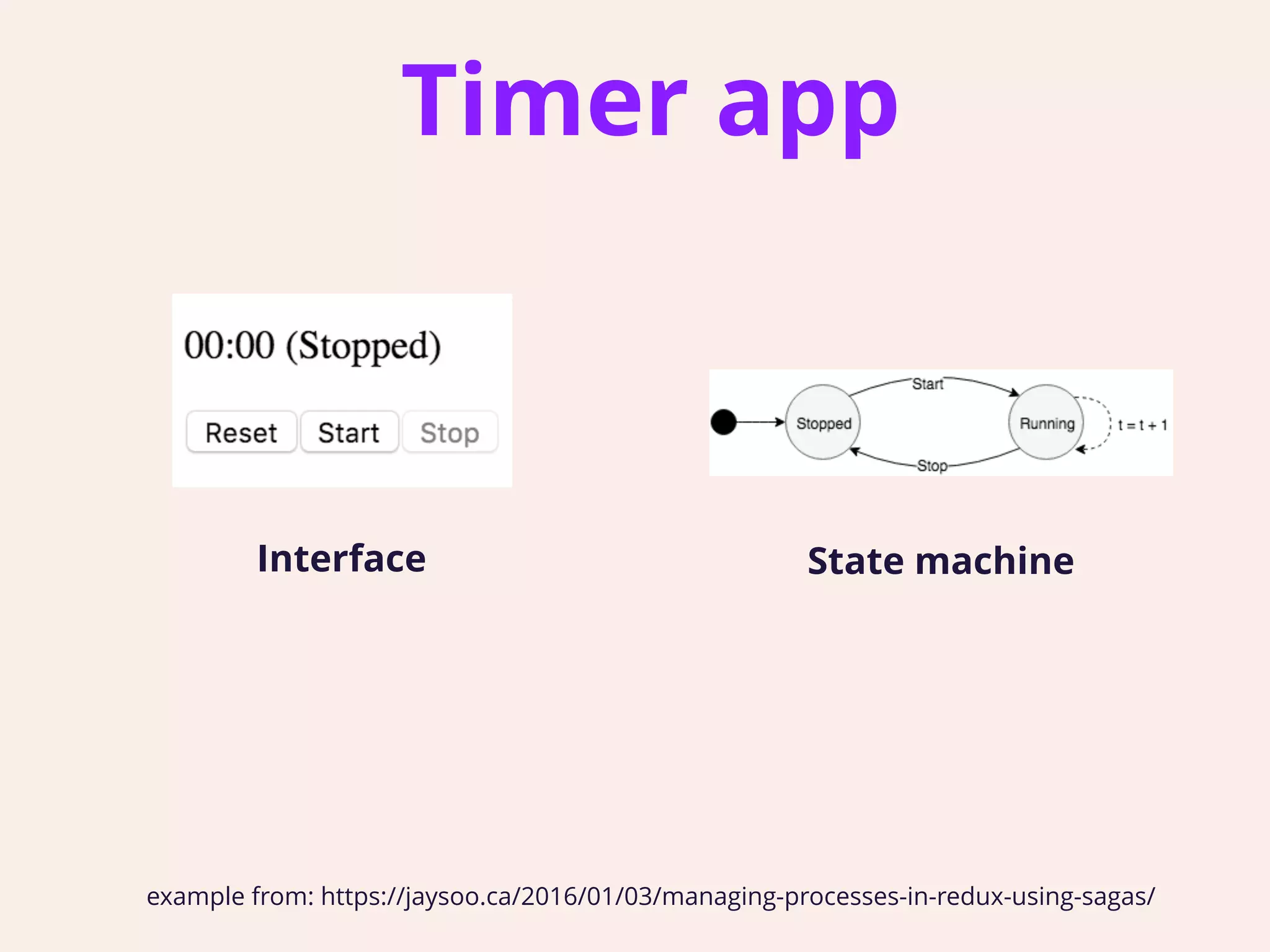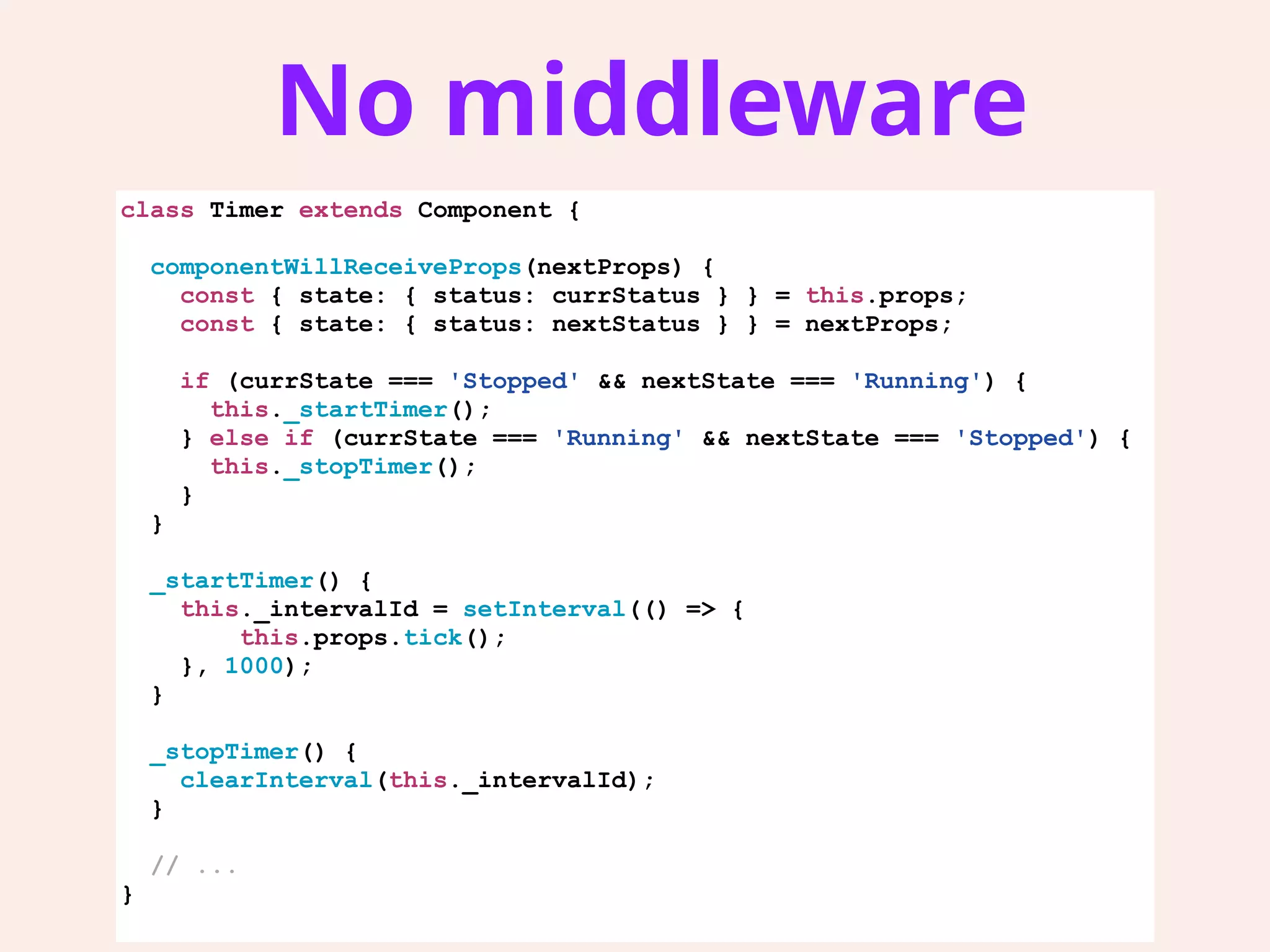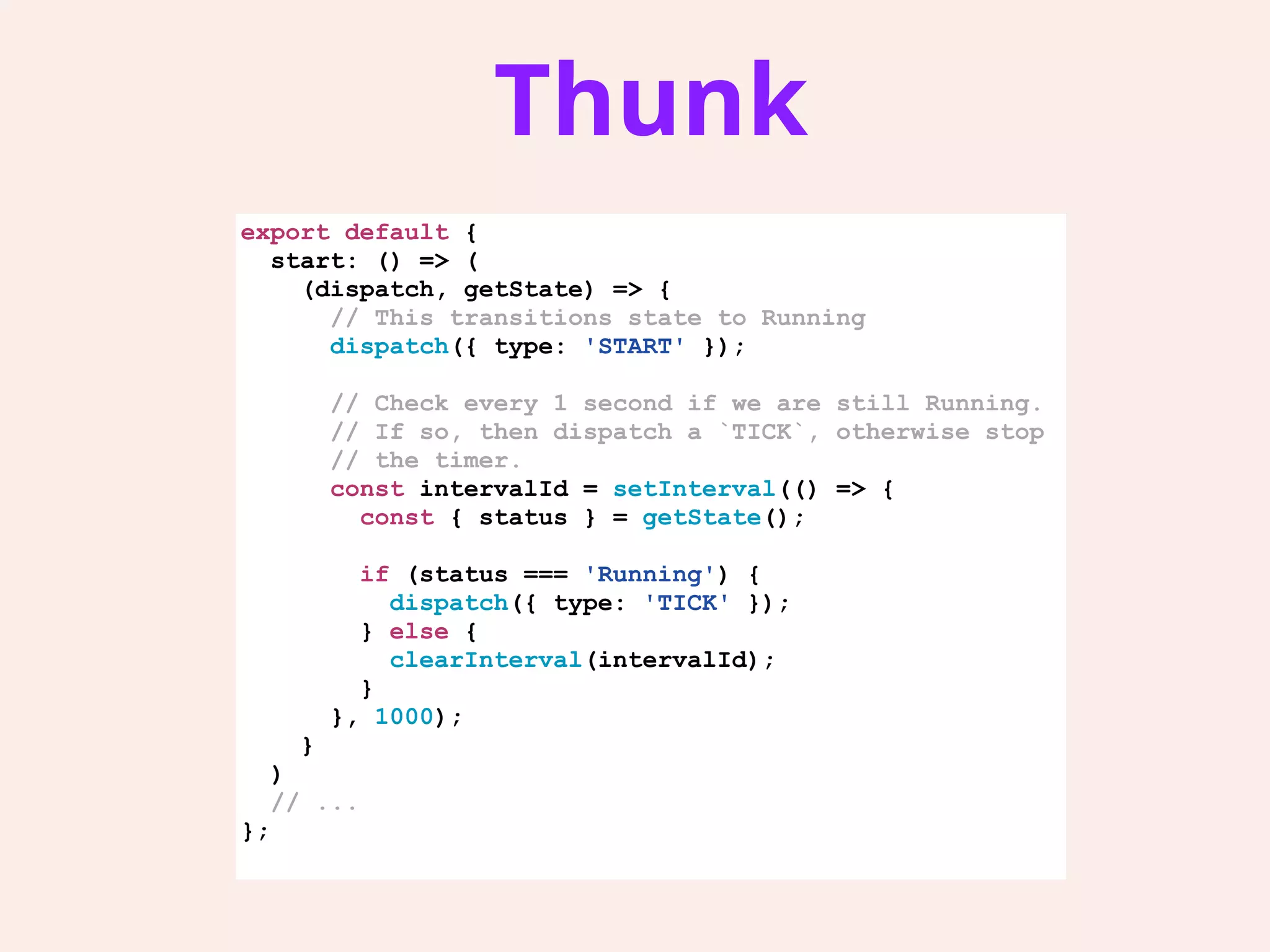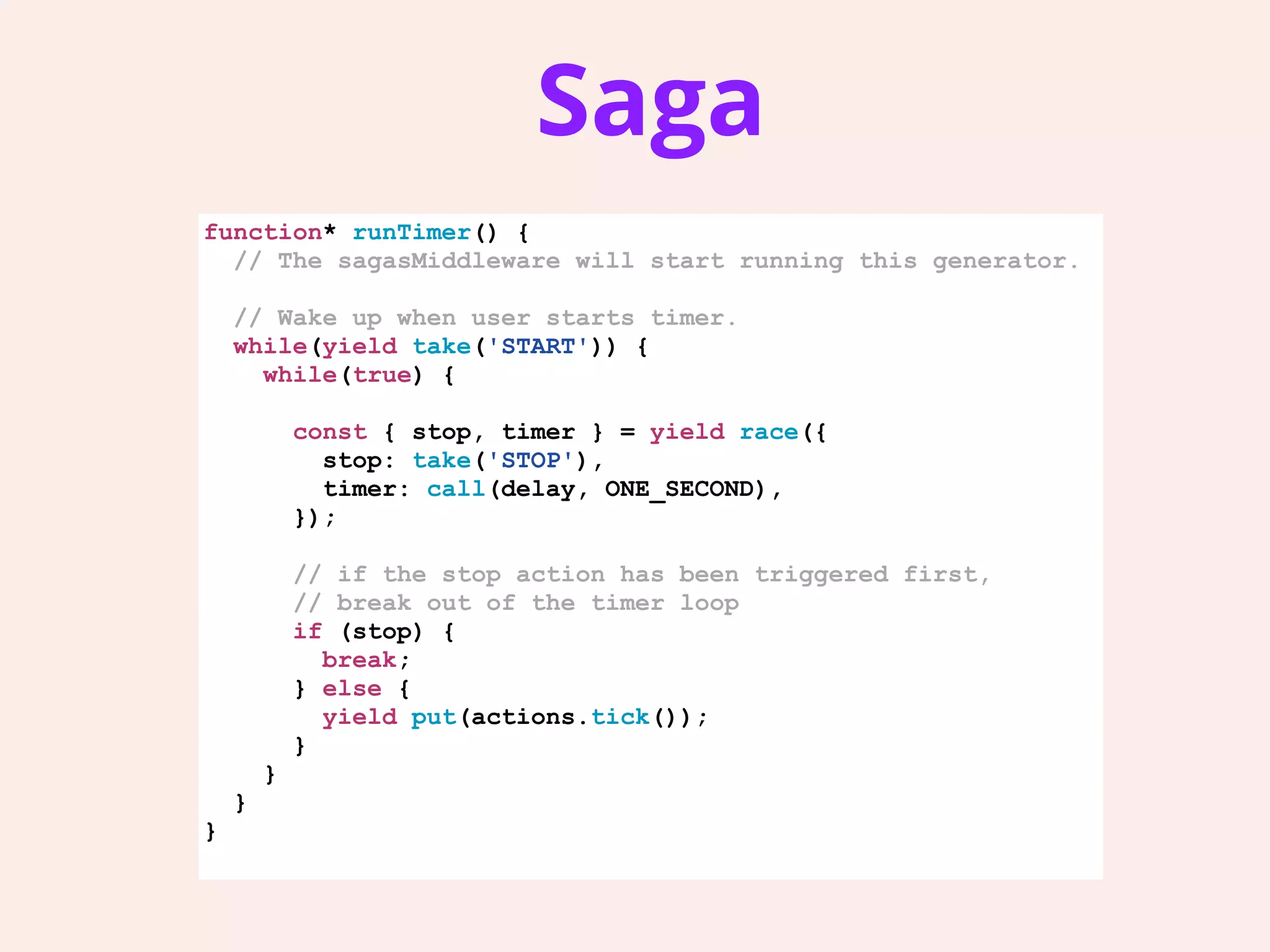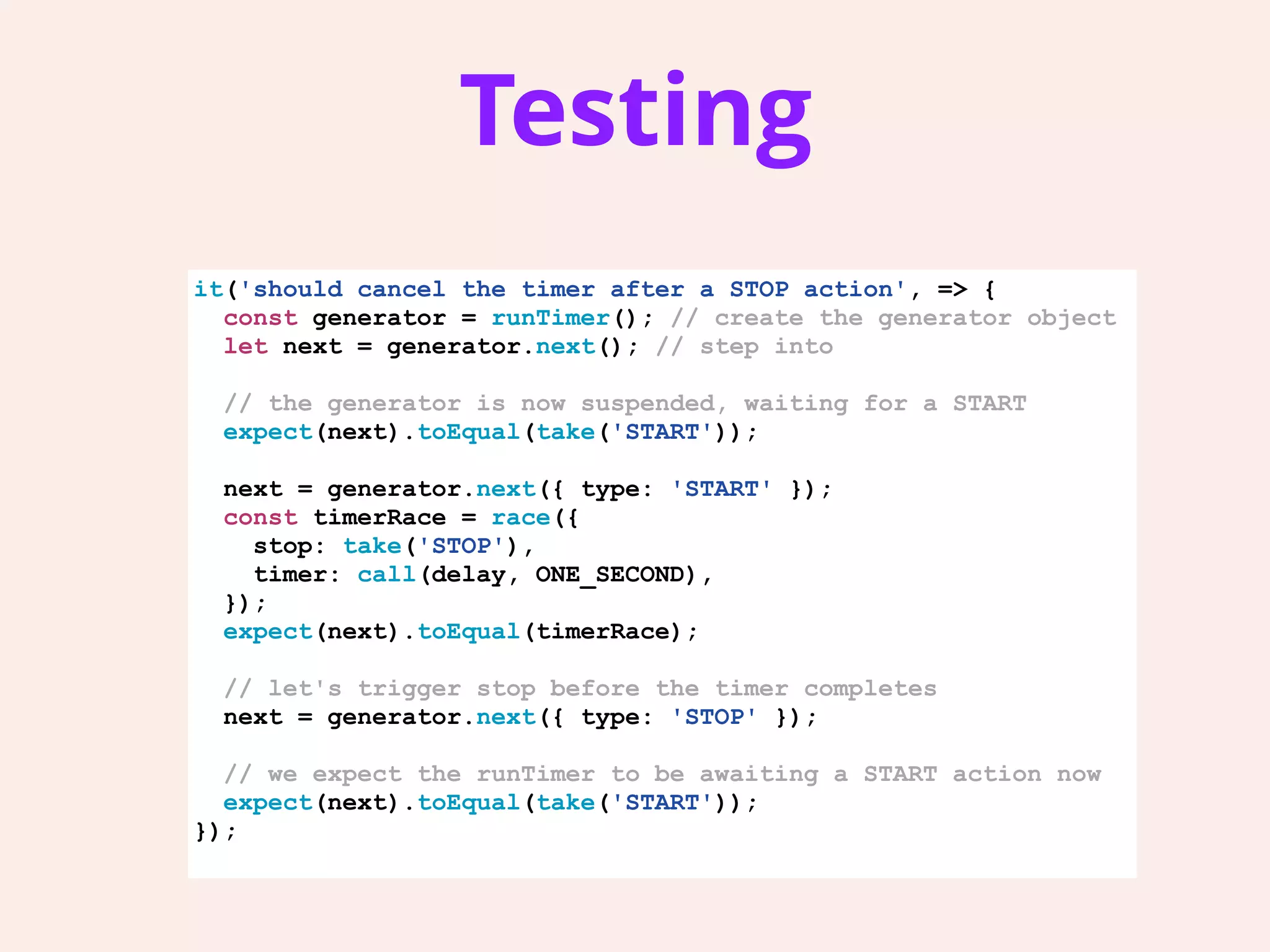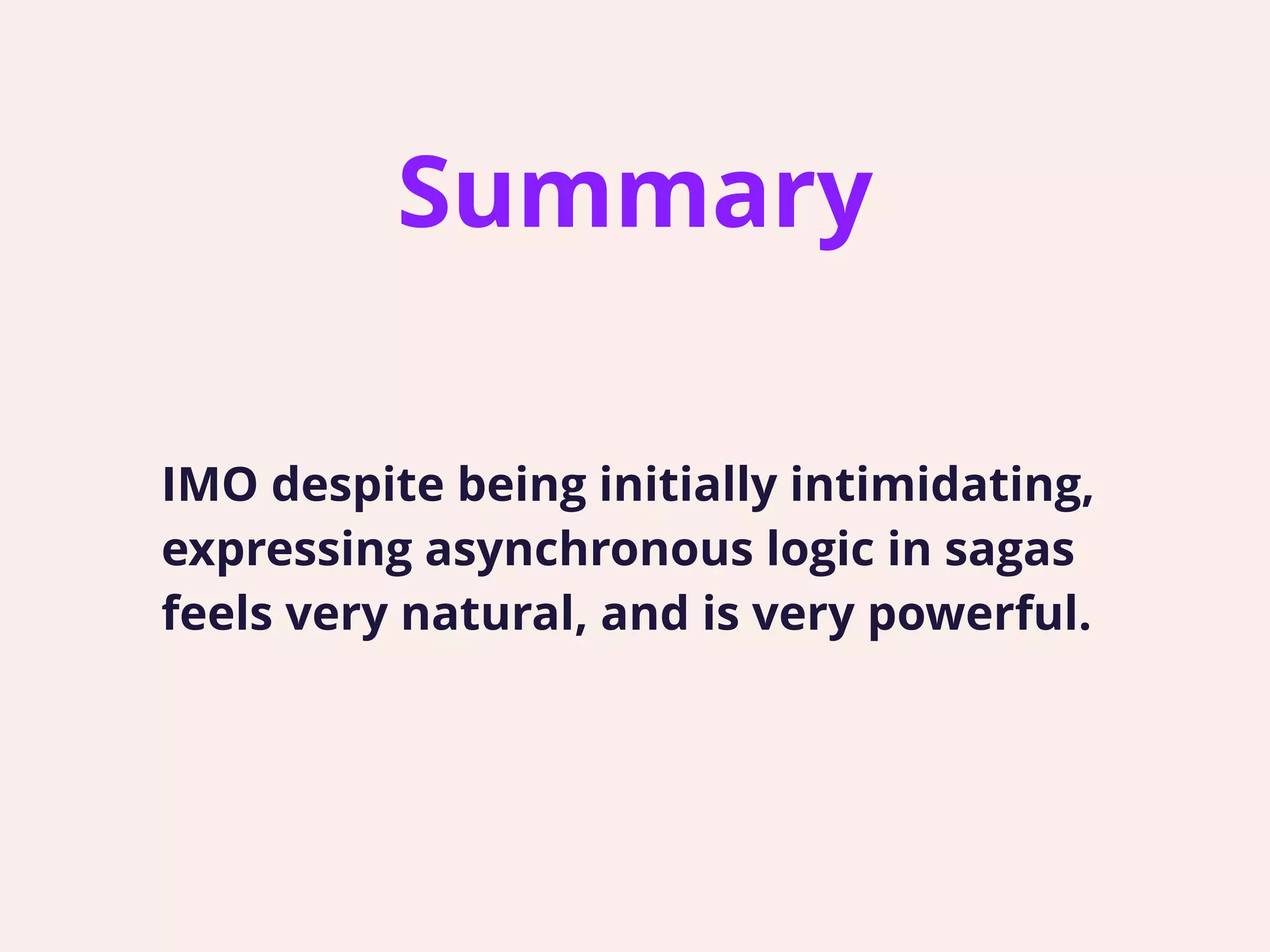Sagas allow asynchronous logic in Redux to be written declaratively as generator functions, enabling complex workflows to be composed, tested, and reasoned about synchronously. Sagas use generators to define effects like API calls and dispatches, with the saga middleware executing the asynchronous code. This makes asynchronous flow control easier to write, read, and test compared to approaches like thunks.

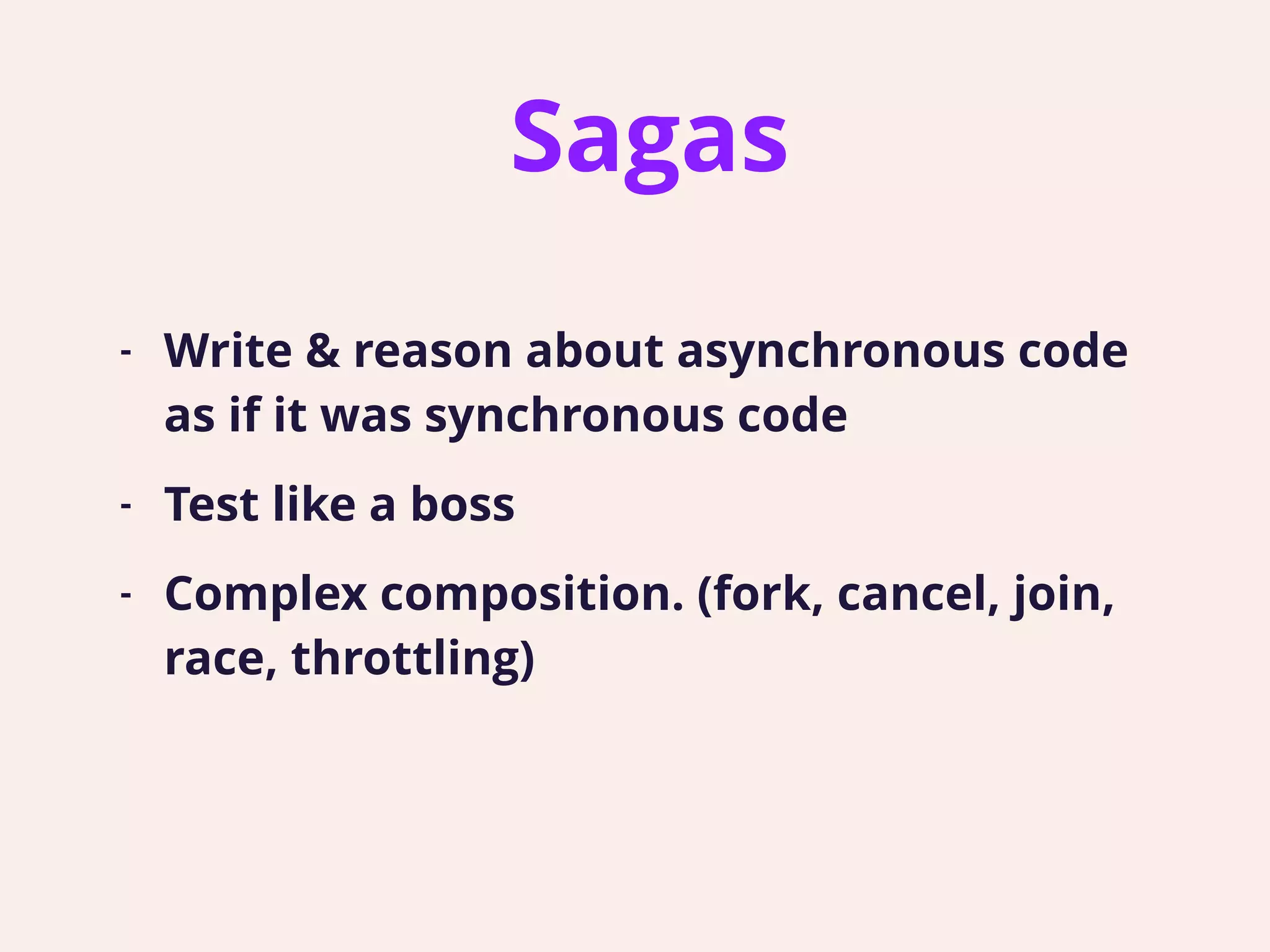
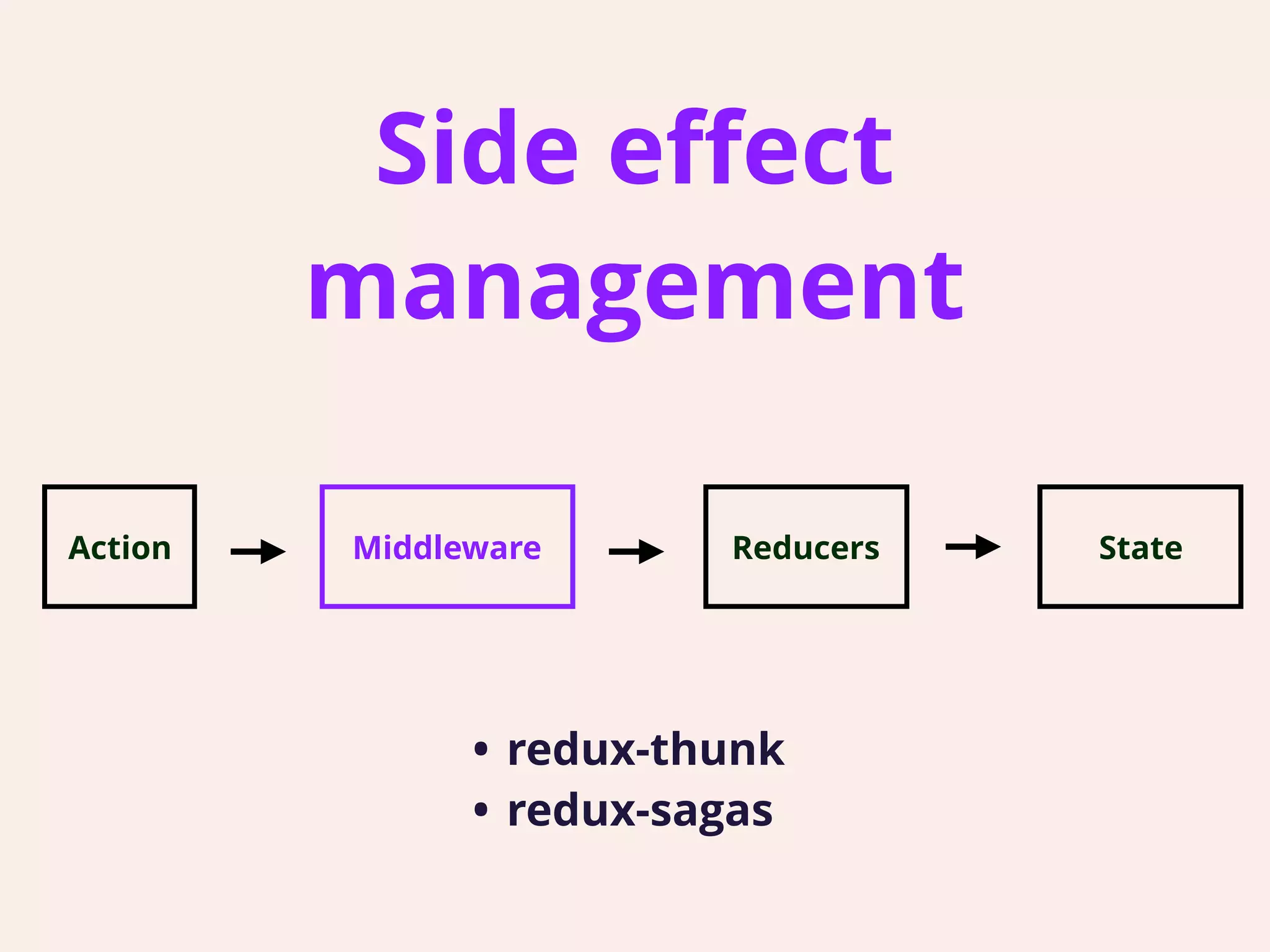

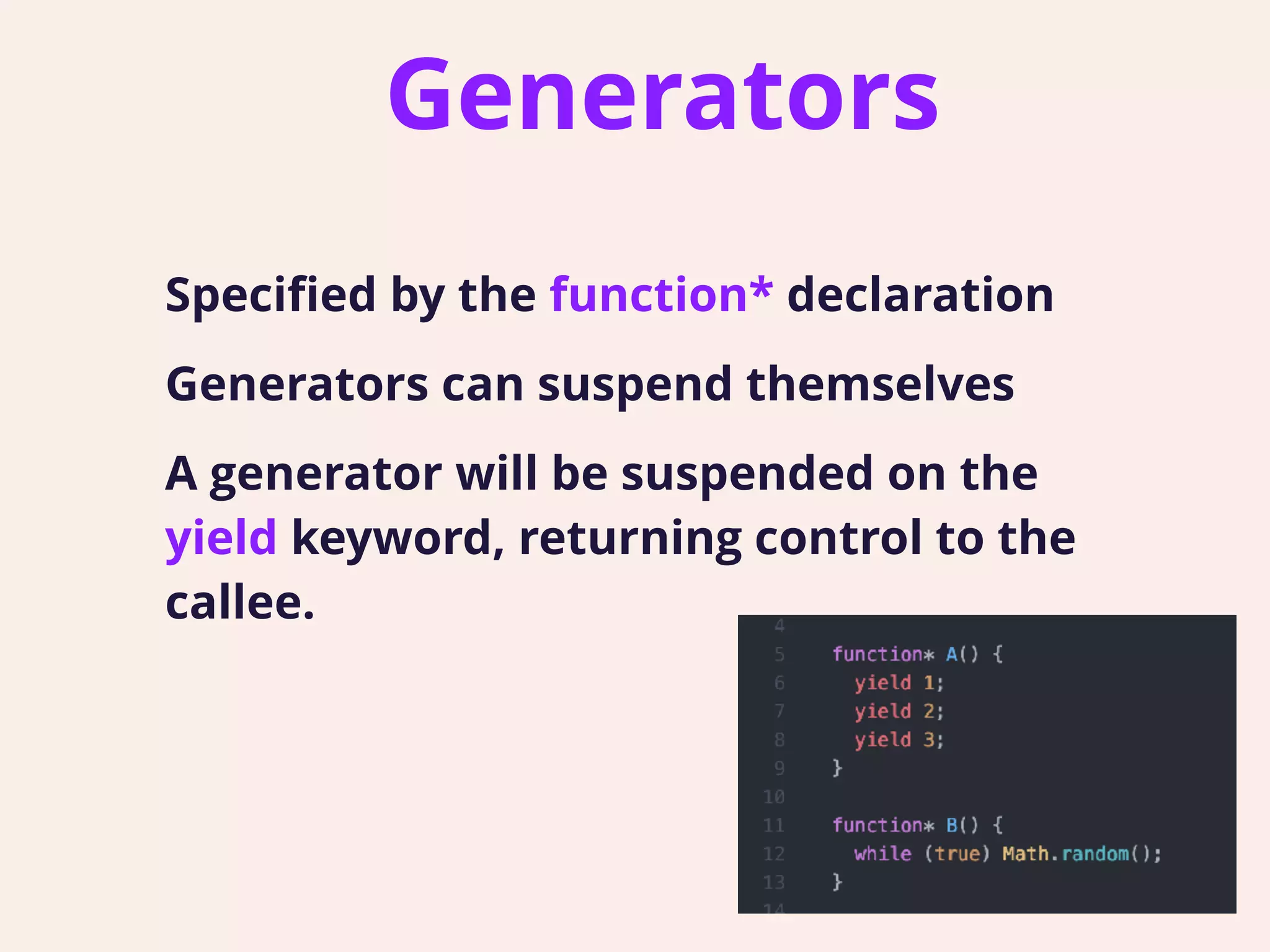
![Declarative Effects You can view Effects like instructions to the middleware to perform some operation (invoke some asynchronous function, dispatch an action to the store). { '@@redux-saga/IO': true, CALL: { context: null, fn: [Function], args: [ 1, 2, 3 ] } }](https://image.slidesharecdn.com/sagas-presentation-170125203230/75/Asyc-flow-control-with-javascript-generators-redux-saga-6-2048.jpg)
